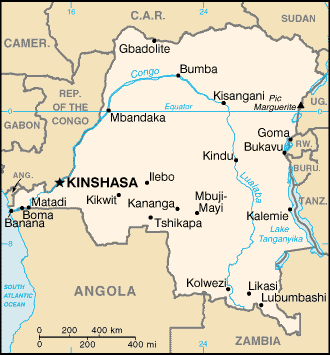Good, Bad, Ugly: Conviction, Meningitis, Court System
DRC: Soldiers jailed for mass rape

MONUC photo of judges
Conviction of seven former Mouvement Pour la liberation du Congo (MLC) (or Armed Forces of the DR Congo (FARDC)) soldiers of the rape of 119 women and girls and other crimes against humanity, resulting in life prison sentences, by the Military Garrison Court of Mbandakais a huge step.
It sets the precedence for further actions to be taken along these lines, which is important because a major component in establishing security and a justice system that works is accountability.
Though I certainly question whether the compensation that the court directed to be paid by the Congolese government, 'jointly responsible' for the events, to victims and families will be received in the amounts determined, at least rulings have been made.
The crimes that this ruling responds to took place in December 2003 in Equateur Province.
It will be interesting to see how the crimes perpetrated in eastern DR Congo are handled in the coming years.
EDIT: Fleur d'Afrique has some words about this event as well.
DRC: Meningitis suspected in the death of 20 in Bandundu

No confirmation has been published that I am aware of as to whether these 20 people, plus another 16 who were still living, were suffering from meningitis. The article states that "If not treated, the disease may progress to delirium and coma. With early diagnosis and antibiotic treatment, however, the fatality rate is low."
Hopefully the fact that the Ministry of Health and WHO officials are aware of the illness and are testing for the disease in Kinshasa means that the survivors will receive proper treatment.
DRC: Interview with Pierre Akele Adua, president of the Congolese military high court
In sum: the judicial system needs reform, recommendations have been made but not implemented. Officials abuse the stature that their stations afford, and employees in the system are underpaid. Prisons are overcrowded and underfunded (food is provided by charities if at all). Impunity is the norm.
M. Akele states that under Laurent Kabila's regime, the situation was worse: "[His military court] did not respect the necessary rules and procedures for the death penalty. It even allowed extrajudicial killings."
When asked whether the new constitution will help improve the situation, his answer was not hopeful, which brings me back to my argument that some structure is better than no structure. At least there will be something upon which to improve.


0 Comments:
Post a Comment
<< Home